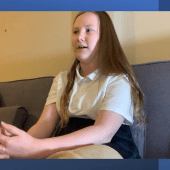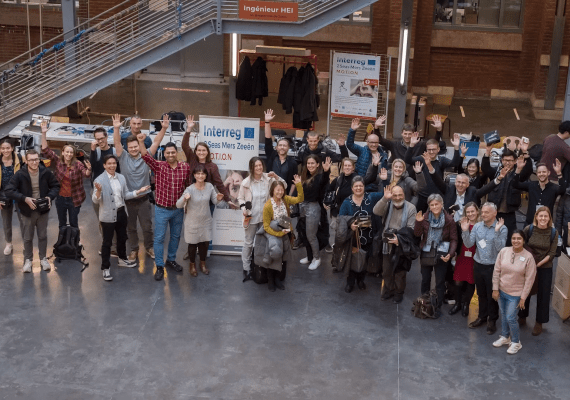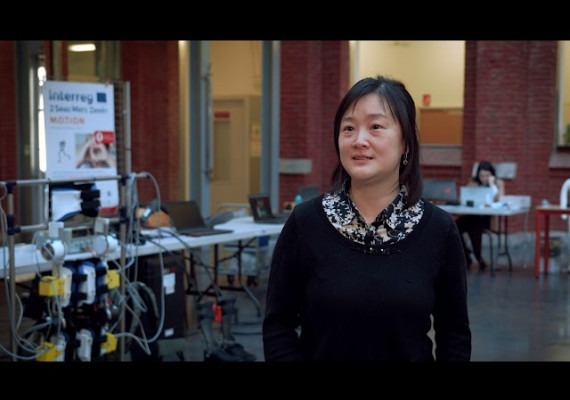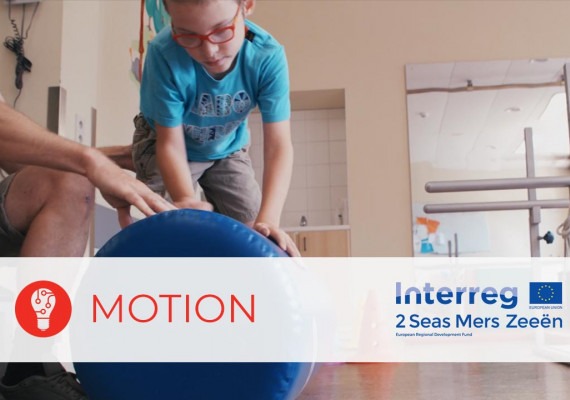MOTION
Mechanised Orthosis for children with neurological disorders
Priority Axis
Technological and Social InnovationSpecific objective
Technological Innovation
Lead partner
JUNIAContact
Start Date
03/01/2019End Date
31/03/2023Project budget
7 412 176 €ERDF amount
4 445 720 €ERDF rate
60%About
Common challenge
The MOTION project addressed a prevalent challenge in the delivery of technological innovation within the health sector, focusing on children with Cerebral Palsy (CP). Research (Beckhung, 2008) indicated that 54% of children with Cerebral Palsy (CP) could not walk without external help , 16% of patients need assistive devices to walk and 30% are not able to walk at 5 years of age. This results in a significant percentage of CP patients, namely children, not benefitting from innovative technology like exoskeletons. The project recognized that existing options for adults involve hospital-based or home-use exoskeletons. However, for children, mechatronic approaches to stimulate walking lack international standards, protocols, and specific exoskeleton devices. MOTION aimed to bridge this gap by contributing to the improvement of delivering technological innovation in the health sector, specifically targeting children with Cerebral Palsy.
Overall objective
Main outputs
Cross border approach
Main Achievements
The MOTION project, concluding in March 2023, achieved significant milestones through collaborative efforts. Partners focused on enhancing international standards for exoskeletons, specifically targeting walking stimulation in children. A comprehensive study involved over 180 participants, leading to the development of multilingual questionnaires. In response to findings, two MOOC training courses were crafted, benefitting 100 attendees across the UK and France. Mechanical modules, including ankle-foot, hip, and lower limb components, reached TRL5 and were tested on both healthy subjects and children with cerebral palsy (CP). This cross-border collaboration enabled the formulation of clinical protocols and a normative database for assessing exoskeleton benefits in rehabilitation. The project's impact extended to creating a transregional network of 300 contacts, facilitating the transfer of technology and knowledge. Results were disseminated through various channels, including press publications, scientific papers, exhibitions, workshops, and webinars, reaching a wide audience. Despite challenges such as the Covid-19 crisis and Brexit, the project delivered three functional modules and a smart garment.
Proudly announcing success, the MOTION project will continue working on exoskeleton tests on ankles, hips, and lower limbs with a turn, wanting to explore new rehabilitation methods at home for children with CP. The journey continues with the RE:HOME project, approved under the Interreg North-West Europe Programme.
Testimonial

I think this technology is very groundbreaking and that it will help a lot of people like me be more independent, have more freedom, and be less dependent on wheel chairs or canes.
Casey, project witness
Working in the MOTION project brigs me happiness because of course we are working on new and future technologies, but we are primarily doing it to improve children with Cerebral Palsy’s life.
Project partner



